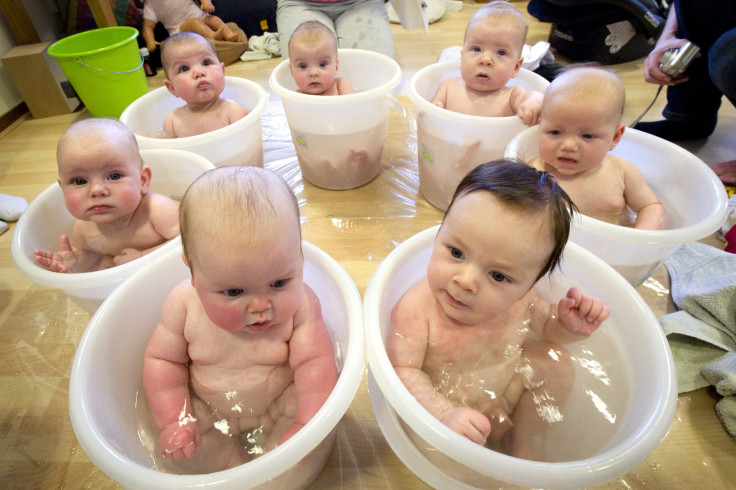Seven-Month-Old Infants Can Think Before They Speak

Infants as old as seven months can interpret the difference between an apple and a banana as well as relate to the similarities shown by two apples, says a new Northwestern University study published online in the journal Child Development. Human intelligence is what makes us unique than animals, the key to which belongs to the analogical ability that allows us to see common relations between objects, events or ideas.
It is a known fact that pre-schoolers learn the abstract relations, but the question that the researchers had in mind was whether the infants are capable of doing the same. With this new study, the researchers were able to establish that seven-month-old infants can learn the abstract relations of same and different after observing very few examples only, even before they learn to speak the words to describe them.
To understand the origins of relational thinking patterns exhibited by the infants, the study team carried out their research in 7-month-old infants by showing them two same and two different types of toys. They found that the infants took their time in observing the two toys which showed novelty between them. This led them to the conclusion that the infants can understand the relation between two same things and two different things.
The lead author of the study, Alissa Ferry, who carried the research study at the Northwestern University, US, and now a post-doctoral research student at the International School for Advanced Studies in Italy, says, "This suggests that a skill key to human intelligence is present very early in human development, and that language skills are not necessary for learning abstract relations. We found that infants are capable of learning these relations. Additionally, infants exhibit the same patterns of learning as older children and adults, relational learning benefits from seeing multiple examples of the relation and is impeded when attention is drawn to the individual objects composing the relation.”
The study co-author, Susan Hespos, an associate professor of psychology at Northwester’s Weinberg College of Arts and Sciences, adds, "We show that infants can form abstract relations before they learn the words that describe relations, meaning that relational learning in humans does not require language and is a fundamental human skill of its own."
To contact the writer, email:ruchira.hoke@gmail.com






